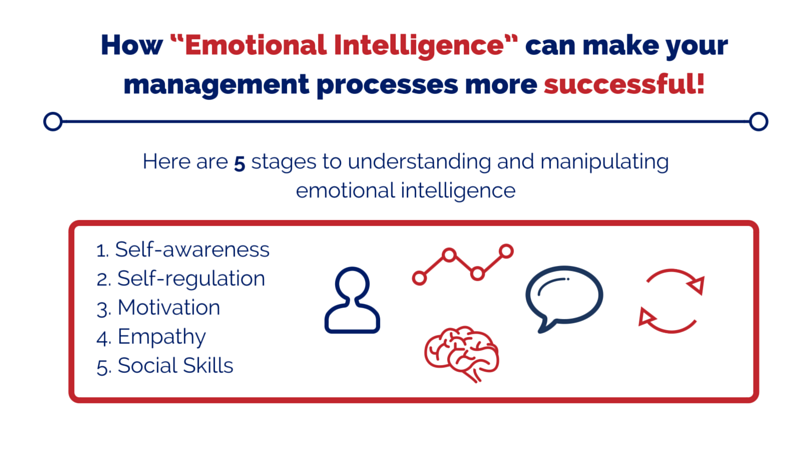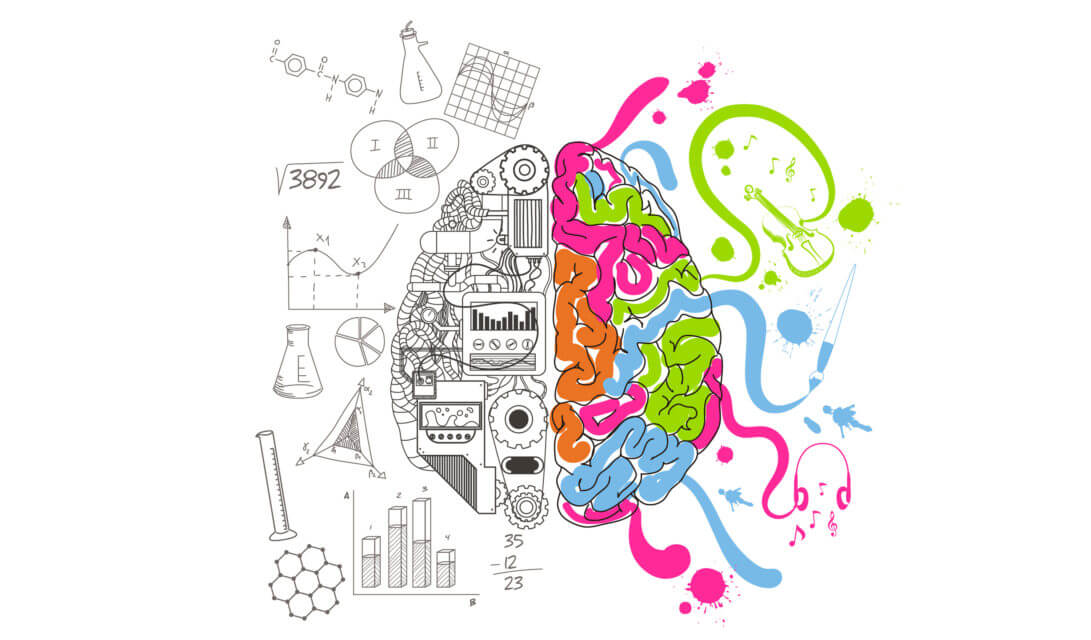I think it’s safe to say that managers of the modern world can be somehow compared to leaders of the past, especially those that have big teams under their command. Throughout the years and decades past, the world has evolved a lot and so has the approach to leadership, or management for that matter.
Ruthlessness was replaced with diplomacy, brute force and fear were replaced with strategy and guidance, direct orders were replaced with suggestions, order was replaced with discipline and control was replaced with management.
While it’s all very debatable whether those changes are effective or not, every manager has no choice but to adapt to changes, at least for the most part. This is where the term “emotional intelligence” jumps in.
“Emotional intelligence is the ability to understand and manage your own emotions, know how those can influence others around you and even manage other people’s emotions.”
This is the definition of EI as presented by Daniel Goleman, the guy who basically promoted the term and made everybody aware of it, even though it’s difficult to comprehend or put to use.
Well, I have another term for EI: Modern Witchcraft.
If you really think about it, it all fits nicely. Emotions are difficult to understand or manipulate (like magic), but at the same time, they can be immensely powerful factors.
The power of emotions is abused by Hollywood moviemakers all the time and there are even real life examples when different people were able to pull off incredible, unbelievable stuff, when guided by one emotion or the other (fear, hate, love, etc.)
If that’s not witchcraft in a nutshell, tell me what it is in the comments then.
Back to reality.

As Goleman presented in his book, there are 5 stages to understanding and manipulating emotional intelligence:
-
Self-awareness
-
Self-regulation
-
Motivation
-
Empathy
-
Social Skills
Let’s go over each of those and see what this concept has to offer.
Self-awareness
Self-awareness is the first step towards exploring emotional intelligence. When you are self-aware, you have a higher chance to make the right decisions in complex situations.
The difficult part of self-awareness is about being completely honest with yourself and recognizing not only your strengths, but weaknesses as well. Only when you are honest with yourself you can improve your own skills, and therefore help your team improve theirs.
Verdict: Important
Building self-awareness can be very useful and help you out in dire situations, when a cold head and strong logical thinking are essential.
Self-regulation
Managers that can control their emotions are considered as more approachable and friendly people by their teams. This can be both good and bad.
The good part is that such kind of emotional practice eliminates verbal abuse, making emotional or hot-headed decisions, stereotyping people or compromising values.
The bad part is that this might create a wrong impression that you are a “soft” person. A bit too soft actually.
While not stereotyping, staying true to your values and ethics code and being calm is good, you need to be careful not to let this out of hand. As much as it’s considered good to be nice to people, sometimes they just need that hard slap in the face to get their shit together and actually start producing results.
Verdict: Tricky
Self-regulation is a great practice, but only if you can use it wisely. Performing like a true leader in complex situations is good, but don’t let that become your team’s “get out of jail” card and have them think that no matter what happens, you will always take responsibility.
This can lead to some pretty nasty things in the workplace. Business is still business, even after 2000 years.
Motivation
Motivation is typically comprised of three things: optimism, love for your work and the endless self-challenge to continuously improve your work quality.
All of these things are very good, unless you simply crack. It’s insanely hard to stay optimistic no matter what happens (for example a chain of unfortunate events that lead to crisis and project failure), and strive to improve your job quality, when it depends on 10 other people except for yourself.
A piece of advice: do not take matters too close to your heart. Sometimes, you do everything right and it just doesn’t work out. Its ok, its life.
Yes, career is important, but career is not your life: it’s a part of your life. Even when you face failure and complexity, keep focusing on the solutions not the problem: the crisis is already there and thinking about it all the time isn’t going to help it disappear any time soon.
Don’t be too hard on yourself and look for solutions. This way, you can make sure that the same thing doesn’t happen in the future. Not repeating mistakes twice is a solid step up the career ladder if you ask me.
Verdict: Tricky
Keep yourself motivated, but don’t let it get to a point that you just feel exhausted and hate everything around you, no matter how hard you try.
Empathy
Empathy in the workplace can be a powerful tool for shaping motivation inside your team and creating the perfect atmosphere. Except that it’s sounds a bit too mythical.
Years of experience have proved that no management process can be perfect, but taking steps towards making it perfect, can be beneficial.
Understanding the body language, putting yourself in your teammate’s shoes and not ignoring their feelings are great examples here.
Sometimes, people don’t voice their thoughts, but their body does it instead. Taking a look at things from your team’s perspective can help understand their problems and help solve those.
And most importantly, don’t ignore the signals that you get from your team. Even if you can’t effectively deal with those right away, simply acknowledging that you are aware of their problems can go a long way.
Verdict: Important
Empathy towards your team members can be one of the biggest motivators. Just be careful not to confuse empathy with softness: understanding your team’s feelings is one thing, constantly trying to help with their problems (which affect their productivity) is another.
Social skills
We have talked about the importance of communication so much that it’s pointless to stress it again.
But I will.
Communication in the workplace is the most important thing for any manager. They say knowledge is power, and communication is the best way to acquiring that knowledge and information.
Verdict: Essential
Communication is the key to successful management, regardless of industry or project. This elaboration should suffice.
Emotions can be powerful when fully mastered, but they can also be devastating when mishandled. Just like magic. Explore the world of modern witchcraft, but don’t let it overwhelm you =)
Follow us



